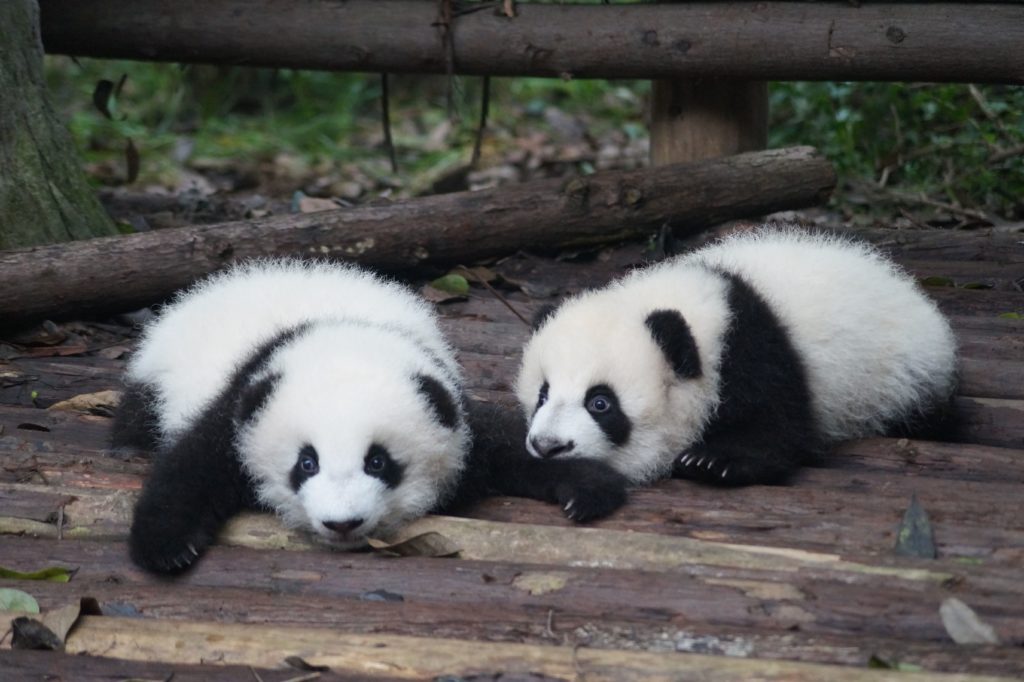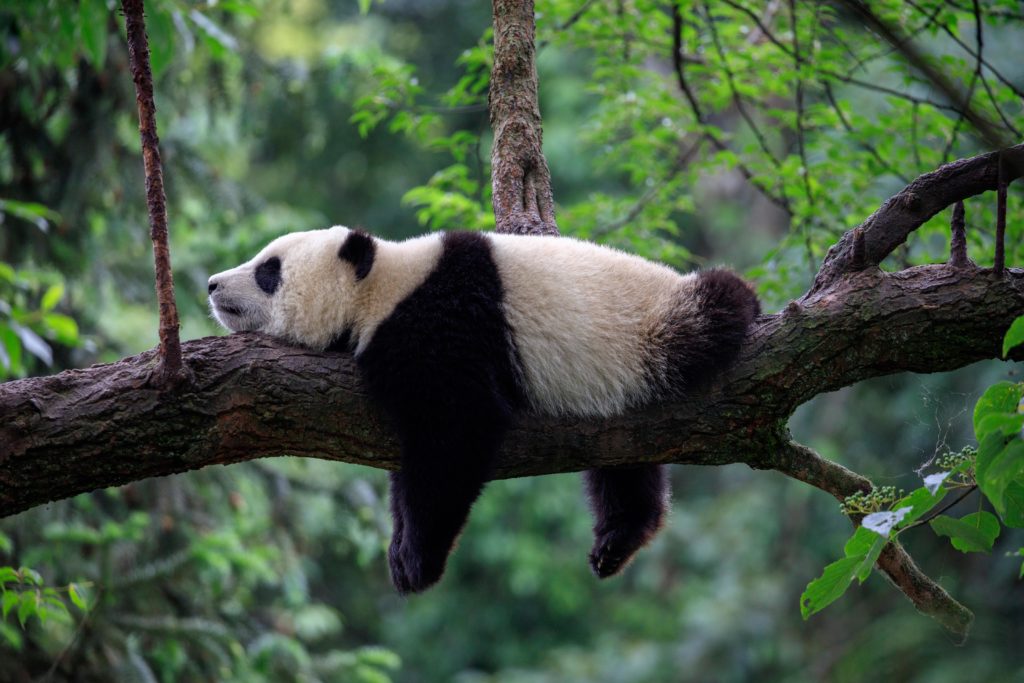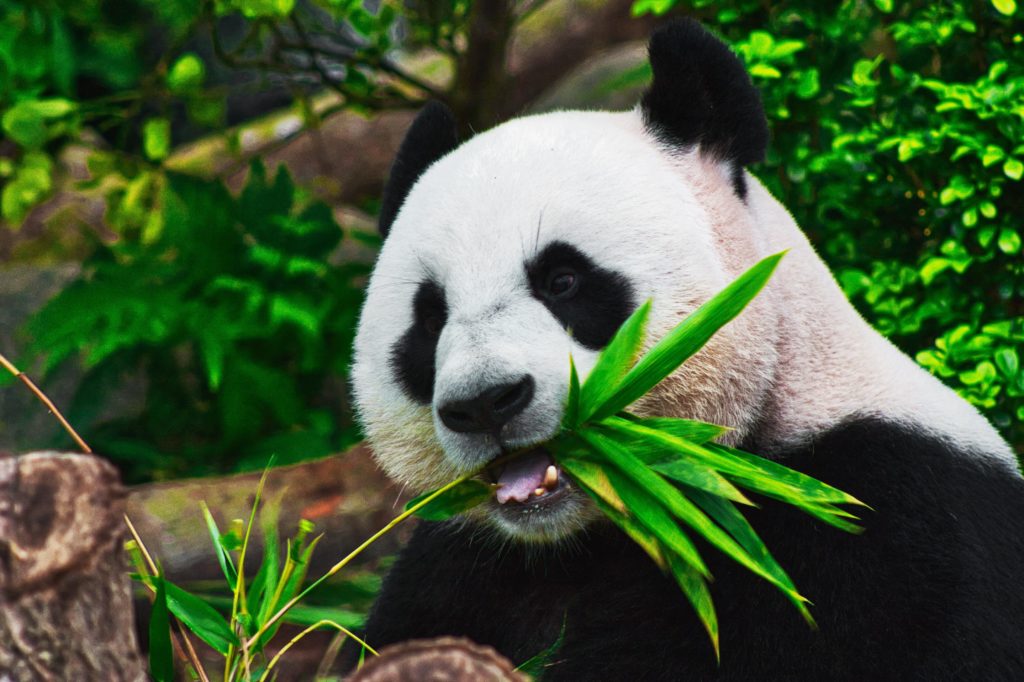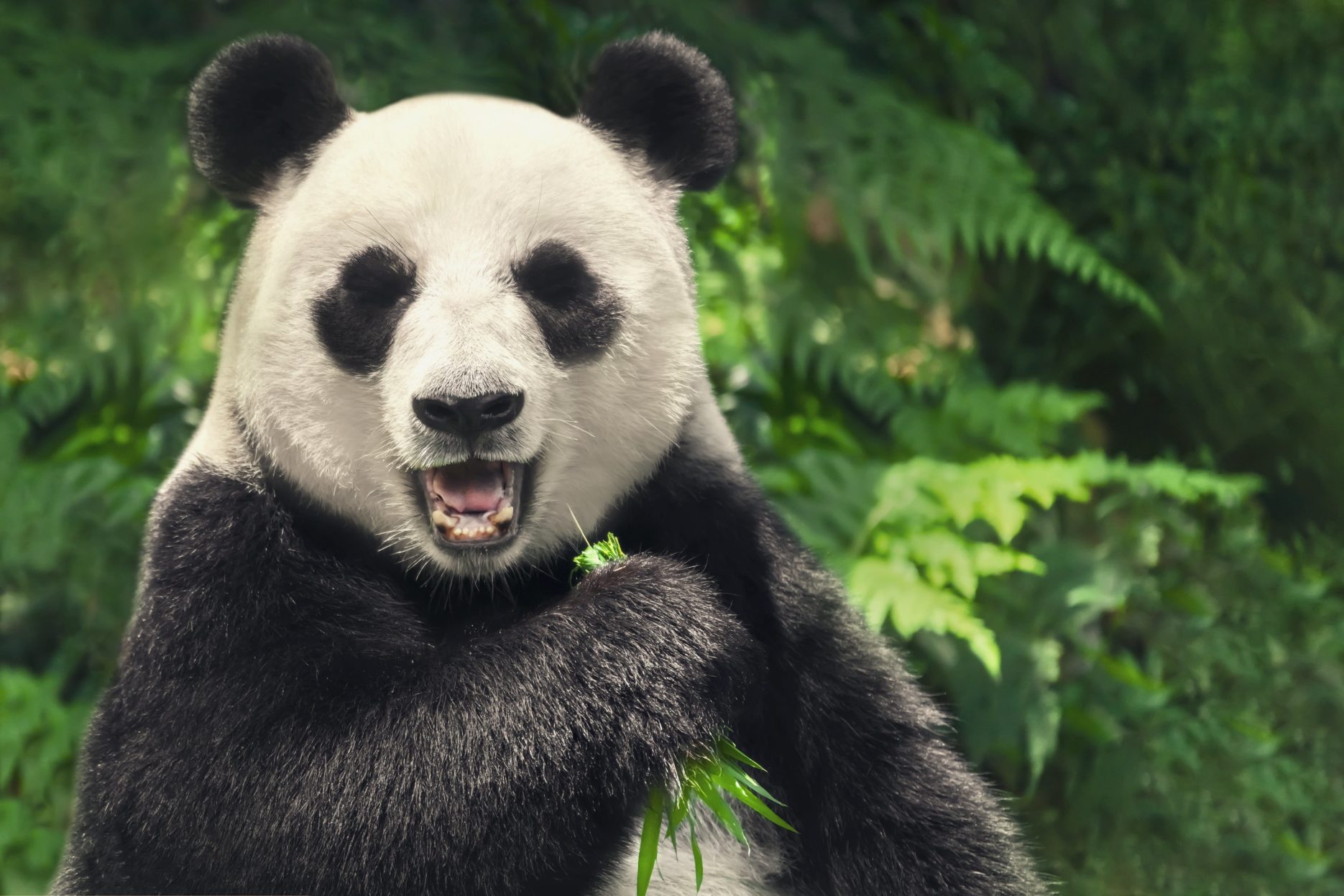Similar to the UK’s Royal Family, pandas represent a way to cultivate ‘soft power’.
Panda diplomacy is the practice of gifting pandas to other countries to help foster diplomatic ties. Similar to the UK’s Royal Family, pandas represent a way to cultivate ‘soft power‘. As well as being China’s national treasure, pandas were a symbol of peace in Ancient China and warring tribes would fly a panda flag to call a truce.

From gifts for allies to financial transactions
It is hard to pin-point the exact roots of panda diplomacy but it allegedly dates back to 685AD when Empress Wu Zetian of the Tang Dynasty presented a pair of bears to Japan.
Since then, the practice has become commonplace and a number of key events in China’s modern history demonstrate its significance.
In order to thank the US for its wartime aid in fighting the occupying Japanese, they were gifted a pair of pandas in 1941. Indeed, Chairman Mao Zedong continued this practice in the 1950s by presenting pandas to favoured allies such as North Korea and the Soviet Union.
As a way to develop foreign investment and coinciding with China’s ‘open-door policy’, pandas became a loan dependant on a financial transaction in 1984

When China started to open up economically in the 1970s, pandas were sent as gifts to Western countries, including the UK, Germany and Japan. Following President Richard Nixon’s visit to China in 1972, the US was given a pair of giant pandas as a sign of diplomatic rapprochement.
However, the pandas didn’t remain a free gift for long. As a way to develop foreign investment and coinciding with China’s ‘open-door policy’, pandas became a loan dependant on a financial transaction in 1984. After the animals became endangered, ‘panda loans’ also became part of an effort to continue conserving the pandas in the wild.
The ‘panda loan’ – a political bargaining chip
Pandas were sent after major trade agreements as a way of expressing a desire for a long-term trade relationship
When the Chinese government started the current wave of ‘panda loans’, researchers discovered a pattern. Pandas were sent after major trade agreements as a way of expressing a desire for a long-term trade relationship. For example, China loaned pandas to Singapore and Malaysia after they signed the ASEAN-China Free Trade Agreement.
However, shifting political relationships can impact the provision of pandas. In the case of Malaysia, an agreement that a pair of pandas would be sent to Kuala Lampur Zoo was signed in April 2014. However, the deal was postponed due to political tensions as Beijing authorities disagreed with the Malaysian authorities’ handling of the disappearance of flight MH370. The loan was only rekindled when Beijing looked to build allies in the region amid growing anti-China sentiment in Southeast Asia.

Indeed, just as politics influences the gifting of pandas, it’s also a factor in their removal. Tai Shan was the first animal to be permanently repatriated in the modern era of China’s ‘panda diplomacy’. Tai Shan was born in the US, but, due to political tensions rooting from President Obama meeting the Dalai Lama, its owner – the Chinese government – demanded the panda to be returned to home soil. In many ways, the panda is used as a bargaining chip when Sino relations are tense.
The cost of upkeep
If a resident panda gives birth, the zoos also have to bear the cost of an extra ‘cub tax’ of $400,000 to China
Yet, it is not just political factors that threaten the animals’ residence, their cost and maintenance can put a lot of pressure on zoos’ finances. The receiving zoos pay $1 million each year per panda which represents a large financial commitment over the full loan period (usually ten to fifteen years).
Apart from the annual fee, zoos must also build special enclosures and facilities, pay for experts from China to oversee the bears’ welfare, and feed them with large amounts of bamboo! If a resident panda gives birth, the zoos also have to bear the cost of an extra ‘cub tax’ of $400,000 to China.
One establishment which is currently struggling is Edinburgh Zoo. With the pandemic forcing them to close temporarily, the staff are having to reassess its giant panda contract and the cost of their daily care, and, as a result, are considering returning the pandas to China.
A popular ‘soft power’ initative

Chinese people adopt a generally positive approach toward panda diplomacy. Many view the practice as a ‘sophisticated’ means to foster friendships with other countries. Indeed, experts believe that it can have the additional effect of helping to raise public awareness about panda conservation amongst the international community.
However, some are of the opinion that there are better alternatives for the animals themselves as travelling abroad can cause a lot of distress. Instead, they suggest fostering a model whereby the international community sponsors the natural reserve in China to allow pandas to remain in their natural habitat. Indeed, some Chinese query the amount of money that foreign zoos invest in caring for the pandas.
The future of panda diplomacy
Panda diplomacy is still in existence today. Recently, the Smithsonian’s National Zoo in Washington extended the contract for their giant pandas for another three years. Under the agreement, they will return to China in December 2023, having been residents in the US since 1972!
The future of panda diplomacy depends on China’s attitudes towards harnessing soft power and its relations around the globe.
Yet it seems that in one aspect China’s hard work has paid off. As of 2016, the International Union for Conservation of Nature (IUCN), the global authority on endangered species, officially downgraded the panda from endangered to vulnerable. In short, this integrated approach highlights that their conservation efforts are working, and this practice also provides hope for the world’s other endangered species.
If you enjoyed this article and want to contribute a piece to Dao, please get in touch with the team at [email protected]
Check out our most recent opinion articles:









